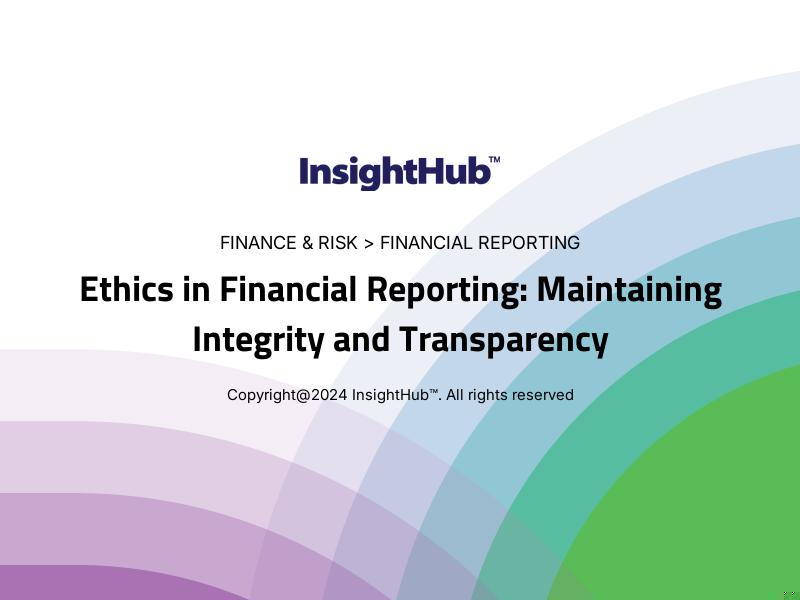
Ethics in Financial Reporting: Maintaining Integrity and Transparency
This training aims to provide participants with an in-depth understanding of the ethical standards in financial reporting, the importance of maintaining integrity, and the need for transparency in financial statements.
| Responsible | Administrator |
|---|---|
| Last Update | 08/14/2024 |
| Completion Time | 3 hours 30 minutes |
| Members | 1 |
Share This Course
Share Link
Share on Social Media
Share by Email
Please login to share this Ethics in Financial Reporting: Maintaining Integrity and Transparency by email.
What you will learn
- Definition and importance of ethics in financial reporting
- Historical context and evolution of ethical standards
- Key principles and values in ethical financial reporting
- Overview of international financial reporting standards (IFRS)
- Role of the Financial Accounting Standards Board (FASB)
- Compliance with Sarbanes-Oxley Act (SOX)
- Implications of GAAP (Generally Accepted Accounting Principles)
- Methods for ensuring accuracy and completeness in financial reports
- Preventing and detecting fraudulent activities
- Role of audits and internal controls
- Best practices for promoting transparency
- Common ethical dilemmas and how to address them
- Case studies of financial reporting failures and lessons learned
- Strategies for ethical decision-making
Program Structure
-
Introduction to Ethics in Financial Reporting3 Lessons · 45 min
-
Definition and importance of ethics in financial reporting
-
Historical context and evolution of ethical standards
-
Key principles and values in ethical financial reporting
-
-
Regulatory Frameworks and Standards4 Lessons · 1 hr
-
Overview of international financial reporting standards (IFRS)
-
Role of the Financial Accounting Standards Board (FASB)
-
Compliance with Sarbanes-Oxley Act (SOX)
-
Implications of GAAP (Generally Accepted Accounting Principles)
-
-
Maintaining Integrity and Transparency4 Lessons · 1 hr
-
Methods for ensuring accuracy and completeness in financial reports
-
Preventing and detecting fraudulent activities
-
Role of audits and internal controls
-
Best practices for promoting transparency
-
-
Ethical Dilemmas and Case Studies3 Lessons · 45 min
-
Common ethical dilemmas and how to address them
-
Case studies of financial reporting failures and lessons learned
-
Strategies for ethical decision-making
-
About the course
This training aims to provide participants with an in-depth understanding of the ethical standards in financial reporting, the importance of maintaining integrity, and the need for transparency in financial statements.
Pada pelatihan ini Anda akan mempelajari:
- Understand the basic principles of ethics in financial reporting.
- Identify common ethical dilemmas and conflicts of interest in financial reporting.
- Recognize the importance of integrity and transparency in financial statements.
- Learn about the regulatory frameworks and standards governing ethical financial reporting.
Metode pembelajaran dilaksanakan melalui:
- Lectures and presentations
- Interactive discussions
- Case study analyses
- Group activities and role-playing exercises
Requirements
Tidak ada persyaratan khusus untuk mengikuti pelatihan ini.
Who should take this course
Financial analysts, accountants, auditors, finance managers, and other finance professionals.